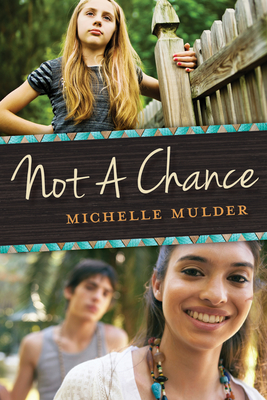written by Michelle Mulder

Dian has been traveling from her home in Canada to the Dominican Republic with her doctor parents every summer since she was five-years old. This year she's thirteen and ready to stay at home, but her parents drag her along anyway. The only bright spot in her summer is seeing her best friend, Aracely, who is fourteen and lives in the small town where Dian's parents set up their clinic. Even this small happiness soon fades though when Aracely tells Dian she is engaged to be married. Dian is flabbergasted--Aracely had planned to move to Canada with Dian's family in a few years, later study to become a doctor, and ultimately return to help the people in her rural village. Learning that her friend has never really wanted to do any of these things is a further blow to Dian, who cannot understand why Aracely would choose what Dian views as a typical village life over the opportunity to study in Canada. She is further concerned by Aracely's fear that she'll never get another chance at marriage, due to the scar she bears on her cheek, relic of an accident when she was four.
As Dian isolates herself from Aracely, she begins to further cultivate her friendship with the handsome, but ostracized, Nerick. Though some Dominicans are Black, Nerick's parents comes from Haiti and antihaitianismo (anti-Haitianism) sentiment in the village is strong. The villagers have long warned Dian's parents not to let her associate with Nerick--that he might put a spell on her--but now that they are teens, Dian and Nerick spending time alone together has become dangerous for Dian's reputation. One neighbor warns her parents that they'd better watch out if they don't want to take home a pregnant Dian at the end of the summer. Added to these stressors is Dian's growing tension with her parents as she struggles to find herself. While she admires her parents dedication to helping the world, she feels frustrated with a lot of the ways they go about trying to do this: refusing to buy new clothes, biking everywhere instead of buying a car, etc. In the end, Dian must discover who she is, if she truly believes her friend has the right to make her own decisions--even if those are decisions she doesn't agree with--and if she trusts Aracely to be smart and experienced enough to make wise choices.
Not a Chance (available March 2013) successfully walks a very thin line taking on the sensitive subject of child/teen marriage. When Dian quotes the UN Convention on the Rights of the Child which states no one as young as Aracely should get married, readers will wonder if that gives her the right to try to stop her friend from doing what she wants. Themes of identity, racism/prejudice, and privilege, along with a well-rounded supporting cast, add depth to this spare novel that clocks in at 145 pages.
No comments:
Post a Comment